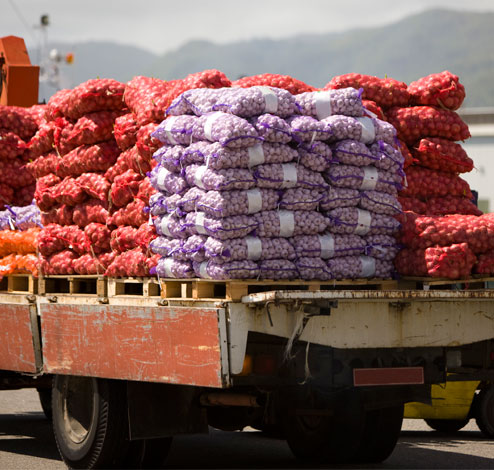Food products are imported into the United States every day. According to the United States Department of Agriculture, U.S. food consumption totaled 654 billion pounds in 2009. Of that 654 billion pounds, 110 billion pounds were imported. Since 2009, that number has been steadily increasing. With the billions of pounds of food being imported, food safety is a top priority. To ensure food is being imported safely, follow our tips on how to import food products safely.
Follow U.S. Food Standards
The ultimate standard is the Food Safety Modernization Act (FSMA) of 2011. The purpose of this act is to stop and prevent food borne outbreaks from imported food. Enacted by the Food and Drug Administration (FDA) and signed into law by President Obama, the FSMA helps protect 128,000 Americans hospitalized each year from food borne illnesses. These illnesses, can be prevented with the proper precautions that FSMA provides. Some of these precautions include importer accountability, certification of high risk foods, and authority to deny entry. Importer accountability ensures that the food being imported is produced properly, while certification of high risk foods requires some sort of credible certification on food with high risk of food borne illnesses. With FSMA, the FDA can now deny entry of food at the port during or prior to inspection based on merit.
Track Data

Different types of data can be collected to ensure that food is being imported safely. For example, businesses can find out what customers are saying about their food. They can provide feedback and listening that can be essential to identifying problems to address as soon as possible. Is something wrong with the packaging? Is the food not the correct temperature? These are all questions that customers can ask, and the supplier can answer to improve the importing process. Importers can also use technology to track data. One such technology is Radio Frequency Identification (RFID). RFID can automate data collections, and be tracked by GPS once the food products are shipped. The temperature of food products can also be tracked by temperature sensors. Such technology is critical to food safety, and is the best way to help prevent food borne illness.
Communicate With Everyone Involved
Communication is key with everything, and with the process of importing food it is no different. There are a lot of parties involved when it comes to the process of importing food. The FDA, Customs Border Protection (CBP), and customs brokers are just a handful of the parties that will be involved with the importing food process. A knowledgeable customs broker will help importers navigate through the proper documentation needed to import food into the U.S. Valuable insight can be gained from customs brokers who know how to proceed with different mandates from the FDA and CBP. Here at AFC International, we are here to help importers with their customs brokerage needs. Importing food safely is a top priority, and AFC International will work with importers to ensure that food is imported fast and easy.
Do you have tips on how to import food products safely? If so, comment below. You can also join the conversation on Twitter, and LinkedIn.


Leave a Reply
You must be logged in to post a comment.